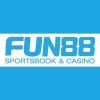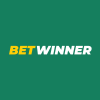Glossary For Sports Betting
Legal sports betting is booming in Canada, and bettors are eager to place some bets on their first NFL game, tonight’s Yankees game, or the Red Wings to win the Stanley Cup. But maybe sports betting is new to you. Ibebet has got you covered.
Here are some common sports betting terms that someone new to the game might need to know in order to place their bets and hopefully cash in a few winning tickets.
Accumulator – This is similar to a parlay in that it involves a series of bets in a single bet. Each bet must win for the bet to win. If one leg of the accumulator loses, the bet loses.
Alternate Lines – All sportsbooks offer lines on sporting events. Some sportsbooks may offer different or alternative point spreads that pay out different odds for the same game. This gives bettors more options to bet on a particular game.
American Odds – American odds are shown differently from the rest of the world. Moneyline odds are displayed as + or – numbers in the US. Outside the US, equal odds may be presented with a decimal point or fraction. For example, Yankees +400 American odds will be 5.0 or 4/1. The bettor takes home the same amount of money if the bet wins.
Arbitrage – This betting strategy involves placing bets on all possible outcomes of an event so that there is a guaranteed profit regardless of the winner. This is best done with Moneyline or futures bets in the US and will usually take place at several sportsbooks.
Asian Handicap – An alternative way of betting on football where the “handicap” team is the favorite. This form of betting started in Asia.
Backdoor Cover – This is a popular term for a team that includes a point spread at the end of the game. The team with the late cover may or may not affect the actual outcome of the game, only the stakes.
Banker – The banker is a European bet similar to the round-robin bet in the US. Different teams are placed in “system bets” to make different “accumulator” (parlay) bets.
Bankroll – The total amount of money a bettor has to place a bet.
Beard – This is a person who places a bet on someone else who wants to remain unknown.
Betting Exchange – A betting platform where people bet against each other instead of betting against the sportsbook. The exchange operator takes a small percentage of the winning bet. It is often considered the most efficient market for sports betting.
Betting Units – The unit bet is the usual bet amount. Bettors may have bankrolls of different sizes, and units are a way to share how much is at stake without giving a specific dollar amount. For example, a high roller may have a unit size of $10,000 per bet while a low roller may have a unit size of $20 per bet.
Bonuses – Sportsbooks offer customers financial bonuses for a variety of reasons. Signup bonuses are the most popular way to incentivize bettors to use a particular sportsbook.
Chalk – The name for the favorite team in an event. This team or player is usually the big favorite. Lime is the expected winner by a big margin.
Circle Game – A game is circled by the sportsbook because the betting limit is lower than usual. This is most often the case when there is an injury in question before a game. It can also happen if there is the possibility of bad weather, trade rumors, or possible “burden management” that might keep players from resting.
Opening Line – This is the first point spread available for a game.
Closing Line – This is the point spread at the point when the game begins.
Closing Line Value – This term is used by bettors to measure the value of the line they bet on before the last available line before the start of the game.
Consensus – General agreement about something. In sports betting, consensus can refer to the most popular team or line bet available for the game.
Contrarian – Betting against mainstream popular opinion trends. Bettors usually place contrarian bets when there is value in opposing opinions.
Dead Heat – Another way of saying that there is a tie in a race or competition.The final position: Sportsbooks have different rules on how to pay in the event of a tie or dead heat in an event.
Decimal Odds – This is a different way of presenting odds than Americans are used to. They are sometimes called “European odds” because this is how odds are listed with European sportsbooks. The math is easier for most bettors to figure out than US Moneyline odds. Decimal odds come from a simple calculation of bet amount x odds.
Dime Line – This is the “10 cents” difference between the Moneyline odds payout between the money placed on the favorite and the money paid by the underdog. For example, Vegas Golden Knights -125 vs. San Jose Sharks +115. A difference of 10 (a dime line) is the traditional profit margin for sportsbooks.
Dog – Abbreviation for the underdog. This is a team that is not expected to win.
Double Odds – This is a European sports betting term mostly used for soccer betting. The double chance bet allows the bettor two chances to win the bet. For example, the outcome in soccer could be a win, a loss, or a draw. A double chance bettor can combine two of the three outcomes instead of just one. This gives the bettor twice the chance to win the bet.
Double Pop – The European way of saying that a bettor will bet double the normal amount. In the US, this is more commonly known as doubling.
Early Cash Out – A way for bettors to settle bets for a certain dollar amount before the event ends. This is a way to lock in profits at a value that is less than the bet will pay off in the end.
Edge – The advantage the bettor has over the sportsbook (or vice versa).
Even Money – Bet that pays the same as stake. Even money sports bets are listed as +100 or -100 in the sportsbook. Unlike traditional -110 bets, no power is paid to the sportsbook. A bettor bets $100 to win $100 instead of betting $110 to win $100.
Exacta – Selects the horses to finish first and second in the race. It is sometimes, but rarely, offered for other competitive sports.
Exotic Betting – This is non-traditional sports betting. Exotic betting is not a point spread, Moneyline, or futures bet on a specific event. These kinds of bets are often listed as prop bets in sportsbooks.
Expected Value – This is the calculation used by bettors to determine whether a bet should win or lose over time. Betting positive expected value (EV) over time is a good way to become a winning sports bettor.
Exposure – The amount of money a sportsbook could potentially lose for a particular event. For example, a sportsbook may have a lot of exposure (risk money) on one team winning a championship versus another.
First Half – A derivative bet that can be placed on a sport that has two innings. Football and basketball are the most popular sports for placing first-half bets. In football, this could be called the “half-time result.”
Fixed Odds – These are the odds that most sports bettors will experience. Once a bet is placed, the odds are fixed and do not change. Horse bettors may experience a change in odds from parimutuel betting.
Flat Betting – Simply put, it is a betting system where all bets are equal. A bettor does not change the bet amount based on wins, losses, or another outside opinion. The bet is usually a percentage of the bankroll but can also be a fixed dollar amount.
Fractional Odds – Another type of odds used mainly in the UK and Ireland. Odds are listed as fractions (1/5) instead of as money lines (-500) used by US sportsbooks.
Grand Salami – Popular hockey bet wagered for over/under on the total number of goals scored by all teams in a day. Some sportsbooks may offer derivative versions for home, away, or period matches during the day. Some sportsbooks may offer similar bets for matches in Major League Baseball.
Handicapper – Someone who analyzes sporting events to predict the winning team or player.
Handle – The amount of money the sportsbook or sportsbook takes from the bet. It can be broken down by sport, region, casino, and more.
Hedge – Hedging is a strategy used by sports bettors to reduce risk or to guarantee a profit from a bet.
Home Field – This is the field (field, rink, etc.) where one team plays its game.Hook – Another way of saying half a point. For example, a team might be a 3.5-point underdog. It could be called “three and one-half hooks.”
Shared Favorites – When there are two favorites for an event. It is widely used in England.
Kelly Criterion – A popular bankroll management strategy for bettors seeking to limit losses while maximizing the amount won.
Layoff – When a bookmaker reduces the risk of losing a bet by placing a bet with a different sportsbook. This usually happens when there is a skewed bet on one side of the game, and the sportsbook or bookie wants to reduce the potential loss.
Listed Pitcher – This is a baseball bet that is active only if the starting pitcher throws the first pitch of a game. If the pitcher is okay, bettors can place bets on “action”. The final bet will take place regardless of who started the game for the betting team.
Live Betting – Placing bets on a game or event while it is in progress. This is also known as an In-Play bet.
Key – Another way of saying that a team or player will be an easy winner. (Note: This is not always the case, no matter what the sports prognosticator or tout says.)
Margin – This is a bet where the bettor chooses the team to win or lose by a certain number of points regardless of the point spread. For example, the Oakland Raiders will beat the Los Angeles Chargers by 10-14 points. The Raiders must win by 11, 12, or 13 points to win. A win by 10 or 14 points is a push.
Martingale System – A gambling system in which the bettor doubles the bet amount after losing. This system can be used for sports and other forms of gambling (i.e., blackjack).
Middle/Middling – Middling sports betting is playing different sides of the same game. This gives the bettor multiple chances to win bets on the same game.
Matched Bet – When a bettor uses a free bet from a sportsbook operator to increase the potential profit. This is a popular technique used in the new legal US sports betting market as promotional offers are available.
Nickel – Place a $500 bet. “A dime” is a $1,000 bet.
New Bet – Placing bets on non-sporting events with a sportsbook. For example, betting on the Oscars in NJ. This type of bet is more popular overseas.
Favorite Odds-on – When a team or person is highly favored to win a game or event. They often have very low odds of paying out much less than the amount wagered.
Off the Board – When a sportsbook stops taking bets on an event or participant, they remove the game odds from the betting board. This often happens when a player is not sure to participate because of an injury.
Public Bet Percentage – This is the percentage of bets placed by the general betting public.
Puck Line – This is a point spread based on goals scored during a hockey match. The base puck line for play is often plus or minus 1.5 because there are so few goals scored. Sportsbooks may offer alternative puck lines with more or fewer goals scored.
Puppy – Another way of saying the team is the underdog in the game.
Push – When a point spread bet lands exactly on the line offered by the sportsbook. Bettors receive their money back if they push. For example, the New England Patriots are favored by 14 points against the New York Jets. If they win by exactly 14 points, the bet is pushed, and the bettor gets his original bet back.
Player Props – Player prop bets are bets on individual players to do something during a match. For example, which player will score the first goal in a football match?
Power Ranking – (AKA Power Rating) – Creates a ranking score for each team so that bettors, handicappers, or sportsbooks can create point spreads. Experienced handicappers use their point spreads to compare with sportsbooks to find the best bets available.
Reduced Juice – When the sportsbook lowers the vig in games. For example, a sportsbook might offer -105 for a game instead of -110. This reduced juice will allow potential bettors to take home more money if the bet wins.- Reverse Line Move: When the line (or point spread) moves differently than the money wagered on the game or event.
– ROI: ROI stands for Return On Investment. The ROI of sports betting can be easily calculated this way: (Return on Investment – Cost of Investment) / Cost of Investment.
– Round Robin: A bet that involves making several parlay bets simultaneously.
– Run Line: This is a type of point spread for baseball games based on the number of runs scored. Running lines are usually plus or minus 1.5 because there is very little running value in baseball. Sportsbooks may offer alternative running paths with more or less running scores.
– Runner: A person who places a bet on a sportsbook for someone else. This person may also be known as a beard.
– Sharp Money: Money wagered by sports bettors who are respected by sportsbook operators. Sharp money often comes from large bets placed by professional bettors. It should be noted that not all big bets are considered Sharp.
– Square: A casual and recreational sports bettor. This is someone who bets on sports as a hobby. They are not respected by sportsbook operators like sharp or professional bettors.
– Steam: This is when the odds change due to the money wagered on the game or participants. Some bettors will “follow the money” or “chase the steam” thinking the bettor knows something they may not.
– Straight Up: When a team wins or loses an event. The point spread is not tied to winners or losers.
– Take the Points: When a bettor places a bet on the underdog, they take the points offered by the sportsbook.
– Take Price: Similar to taking points. This is when a bettor takes a price on the games offered by the sportsbook. Bookmakers usually bet the money line on the underdog.
– Tissue Price: Initial odds offered by the sportsbook. This price is usually considered the fairest price on a bet.
– TKO: Abbreviation for Technical Knockout in boxing.
– Total: Total is the number bettors will over or under on the points (or runs, goals, etc.) scored.
– Tout: Someone who sells or provides sports betting options.
– True Odds: True Odds are the actual odds of an event occurring. In sports betting, this is the most accurate point spread or Moneyline.
– Wire-to-Wire: This is a bet that a team will lead in each quarter or for a certain number of quarters. Wire-to-wire betting is the most popular in basketball.
How do betting lines help bettors understand the possible outcomes of a sports event?
Sports betting is an activity that has become increasingly popular in recent times. Many gamblers make use of the betting opportunities present within the world of sports in order to try and make a profit. However, it is essential that any gambler wanting to bet on sports has a good understanding of the different terms associated with the activity so that they can make an informed decision. Here are some of the more commonly used terms associated with sports betting.
Odds – All sports betting revolves around the concept of odds. The odds associated with a certain bet will determine how much a person stands to win should the bet be a success. Basically, the higher the odds, the more difficult the bet is to turn a profit from, yet the larger the potential payout.
Betting Lines – Betting lines refer to the set of numbers and symbols used to show bettors the possible outcomes of an event. They can be found at both online and offline sportsbooks and usually show what the favourite and underdog are in a given match.
Point Spread – The point spread is a line that represents the estimated difference in total points scored between two opposing sides (favourite and underdog). It is also refereed to as the ‘spread’.
Bankroll – This term refers to the total funds available to a gambler to use in making their bets. It is important to understand your bankroll before you engage in sports betting.
Parlay – This is a type of bet that consists of two or more bets combined in one. Parlay bets tend to offer larger potential returns than separate wagers, but require all individual bets to be successful in order for any payout to be triggered.
Moneyline – Moneyline bets are the simplest and most common form of sports betting. They involve the bettor picking whichever team they think will win the game and if they are correct, the bettor will be paid out as outlined in the bet’s moneyline odds.
Over/Under – An over/under bet is a wager in which the gambler predicts whether the total number of points or goals scored in a game will be over or under a certain number.
In-play Betting – This term describes bets placed during the course of an event. In-play bets are based on changing odds as the match progresses, rather than the odds of the result at the beginning of the match.
These are just a few of the more commonplace terms associated with sports betting. Knowing and understanding them is essential to making informed decisions when it comes to placing a wager. Above all, it is important to remember that sports betting should only be undertaken if you are willing to accept the associated risks.







